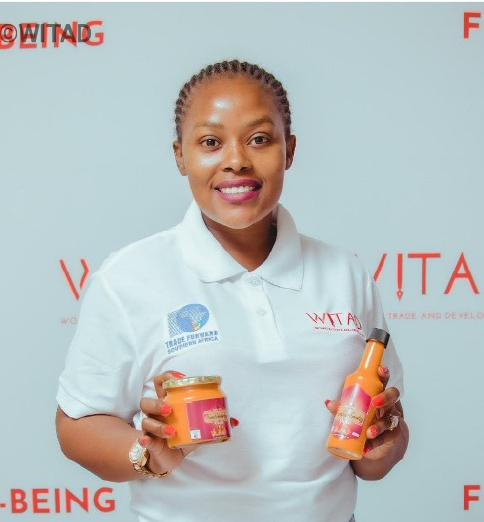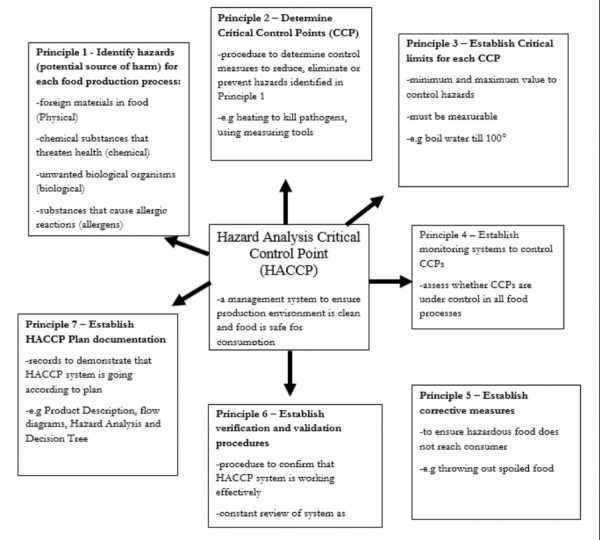
26 Women Empowered With Training On Standards To Export
By Thembela Msibi – WITAD Communications and Advocacy Officer
 Women in Trade and Development (WITAD), in partnership with Trade Forward Southern Africa, a UK funded organisation has equipped 26 women-owned businesses with product safety, quality management (systems), global good agricultural practices, packaging and labelling and marketing knowledge. This was part of the Export Readiness for Gender Sensitive Trade capacity building that was implemented from September to October 2022. The target was to train 30 women. This goal was to equip the women to remove the non-technical barriers to trade (standards, packaging and labeling requirements) that prevent many local businesses from accessing international markets.
Women in Trade and Development (WITAD), in partnership with Trade Forward Southern Africa, a UK funded organisation has equipped 26 women-owned businesses with product safety, quality management (systems), global good agricultural practices, packaging and labelling and marketing knowledge. This was part of the Export Readiness for Gender Sensitive Trade capacity building that was implemented from September to October 2022. The target was to train 30 women. This goal was to equip the women to remove the non-technical barriers to trade (standards, packaging and labeling requirements) that prevent many local businesses from accessing international markets.
Following this training, the businesses and products will be developed to successfully penetrate the SACU+M, UK markets and other markets. The opportunity was open to women-led SMEs in agriculture, cosmetics and natural ingredients, food processing and green solutions. There is a good generational mix of young ladies and senior women amongst the trainees.
| Agriculture
Amambo Agri Solutions Lunga’s Farm High Purpose Investment Trade Food Basket Foundation Rural Grown Farms BMD Farms K.S.G Farming Tradeline Pty LTD Zikhomo Kwambili (Pty) Ltd NuGreens Life Is Green |
Cosmetics and natural ingredients
Herby Treat Kay’s Body Care Nel Creations My Coils (Pty) Ltd Organic Hair care Milos Oils Nkosinemandla Services HealingHands
|
Condiments and high-value specialist foods
Mother & Daughter Cayenne Sauce Pecko Sauce Make’s Chilies Kokonono Mel’s Pantry SD Tumblerfashy’s Chillie |
Green technology and renewable
Ban-twa-na
|
Training
The first week of the training was on health and safety code of conduct, with special focus on HACCP. It was important for the trainees to learn how to keep their workstations secure and products safe for consumption. With the long-sighted view that these businesses will expand to become big production companies, it was integral to cultivate a culture of compliance at their embryonic stage.

One of the trainees, Ms. Nosipho Mavimbela, founder of Tumblerfashy’s Chilli that produces Cayenne Pepper Sauce and Cayenne Pepper Spice expresses her excitement about the HACCP training: “HACCP is about producing food that is safe for consumers. Even if you work in a small space, you must adhere to hygiene standards and prevent contamination. Make sure that you treat it as a big facility because that is where it starts.”
Since the training, she has developed flow diagrams for her spice and chilli sauce from start to dispatch. “I know the weight of my products and how to cook them so that they are consistent. This will help me with audit and traceability. Flow diagrams help to identify hazards so as to mitigate them and grow sales,” she says.
Nosipho continues to advise that food processors must invest in labelling “that will talk to the customer.” She has also begun brainstorming about her new labels that will state any allergens contained in her products, Best Before date as well as how to store the products after opening. Doing this will protect the company and consumer.



